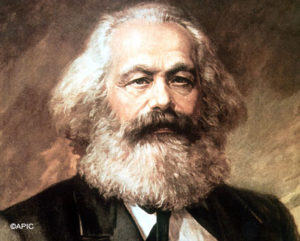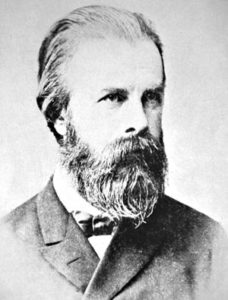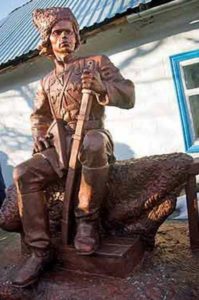John R. Searle, The Construction of Social Reality, 1995.
John R. Searle, Making the Social World: The Structure of Human Civilization, 2010.
John Searle explains in what sense he is a realist.
Andrew Chrucky
John R. Searle, The Construction of Social Reality, 1995.
John R. Searle, Making the Social World: The Structure of Human Civilization, 2010.
John Searle explains in what sense he is a realist.
Chris Hedges’ keynote speech at the “After Trump and Pussy Hats” event in Vancouver, British Columbia, on March 3, 2017.
John Pilger evaluates the presidency of Barack Obama
Chris Hedges: Obama is a “Poster Child for the Death of the Liberal Class”
Chris Hedges: Inverted Totalitarianism, Obama and the Corporate State
Looking for “American imperialism” on Youtube, I was surprised by the large number of videos. Where to begin? What to choose? Well, lets start with trying to understand what is meant by the word “imperialism” (Wikipedia). Imperialism involves rule by a foreign government with or without colonization. The point of ruling a land area is to extract from it some advantage, as through taxation or through some business operation. A notorious example of such a business operation was that of Leopold II of Belgium: “Leopold extracted a fortune from the Congo; initially by the collection of ivory and after a rise in the price of rubber in the 1890s, by forced labour from the native population to harvest and process rubber. Under his regime millions of the Congolese people died. Modern estimates range from one million to fifteen million, with a consensus growing around 10 million.”
Imperialism can proceed by incorporating adjacent or non-adjacent territory under the rule of a State. In the case of the United States, though there were objections to the land-grabs from the Mexicans in the Mexican- American War (1846-1848). [“Acting on his convictions, Henry David Thoreau was jailed for his refusal to pay taxes to support the war, and penned his famous essay Civil Disobedience.”]
This business of expanding the territory of the United States through the acquisition of adjacent territory was not called “imperialism,” until the U.S. got into the business of acquiring rule over non-adjacent territories through the Spanish-American War in 1898. This war started as a war for the liberation of Cuba and the Philippines from Spanish imperialism, but the United States refused to give either Cuba (and Puerto Rico) or the Philippines independence. This led to the Philippine-American War (1899-1902), resulting in 1/4 million dead Filipinos.
In 1898, in opposition to the annexation of the Philippines, there was formed in the United States the American Anti-Imperialist League (Wikipedia), of which Mark Twain, from 1901, was vice-president.
Stephen Kinzer just published a book about the start of American imperialism: THE TRUE FLAG: Theodore Roosevelt, Mark Twain, and the Birth of American Empire, 2017. Below is a talk which Kinzer gave on the book:
Paul Craig Roberts (born April 3, 1939) is an American economist, journalist, blogger, conspiracy theorist, and former civil servant. He was the United States Assistant Secretary of the Treasury for Economic Policy under President Reagan in 1981. He has an internet site at: Institute for Political Economy. Some of his books:
— How the Economy Was Lost: The War of the Worlds (AK Press, 2010)
— The Failure of Laissez Faire Capitalism and Economic Dissolution of the West (Clarity Press, 2013)
— How America was Lost. From 9/11 to the Police/Warfare State (Clarity Press, 2014)
— The Neoconservative Threat to World Order: Washington’s Perilous War for Hegemony (Clarity Press, 2015)
Paul Craig Roberts-Neoconservatives Driving World to War
I use the following table for classification of political and economic institutions. The rationale for this derives, in part, from Max Weber’s claim that the necessary condition for capitalism is the existence of free-laborers. A free-laborer is a vagabond, a homeless person. And he is in this condition because he does not have lawful access to free land on which to subsist. And this permission for land occupancy must be granted either by a centralized government (called the State) or by a communal government (mutual agreement).
The box occupied by anarcho-capitalism, neoliberalism, and libertarianism is paradoxical. Imagine a group of people, who are all equal in rights, and who land on an uninhabited island. How is it possible to start a capitalist system without violence? Remember that a necessary condition for capitalism is the existence of people who do not have free access to land. In that case, some of them have to be deprived of this access by some means — force? persuasion? trickery? toss of a coin?
| Centralized Government | Decentralized Government | |
| Free Land | Socialism | Anarchism |
| No Free Land | Capitalism Neoconservativism | Anarcho-Capitalism Neoliberalism Libertarianism |
Several years ago, I recommended that C. D. Broad be considered the default philosopher of the twentieth century. By “default” I meant what in computer word processing programs is meant by factory settings. These are considered the most useful or the most widely used settings. I had in mind for Broad what, for the medieval world, was the role of Aristotle. Well, the only discernible effect of my proposal was to resurrect Broad from oblivion.
My recommendation of Broad was restricted to logic, epistemology, metaphysics, and ethics. It did not include “political economy” — a somewhat neglected phrase. Why is it neglected? Because the economic system of capitalism is presumed by those in power and by those who are influenced by those in power to be the desired system; consequently, courses in colleges which are offered for the study of how this economic system works are simply called “Economics.” If they were to be called “political economy,” that would suggest a reflective criticism — which is not wanted.
That brings me to the question of who is or was the default philosopher of “political economy?” Here I have no elbow room for recommendations, because history has made Karl Marx the default philosopher of political economy. As Eric Wolf remarked in Europe and the People Without History (1982), “. . . the social sciences constitute one long dialogue with the ghost of Marx.” (p. 20)

And this is recognized by the prominent Internet site: “Marxists Internet Archive.” Although the site rightly makes Marx the pivotal — or, using my term “default” — thinker, the archive really covers what is better called “Socialism.” Let me explain. If Capitalism is the economic system which favors the employer, then socialism is the economic system which favors the employee. Viewed this way, the State (which means a centralized government) can then be used by socialists either for reform or for revolution. The other alternative for socialists is to get rid of the centralize State altogether, and replace it with small, grassroots communal democratic governments. This is the goal of anarchists. (Incidentally, the idea that government can be abolished entirely is a myth because government is simply the customary rules, or rules which people have adopted freely, or rules which have been imposed on them.)
As to the Marxist Internet Archive, though it includes some of the major anarchists, it neglects many. Other than using Wikipedia to get oriented in anarchism, I recommend using “Anarchy Archives” . I have also tried to compile an alphabetical bibliography at “Anarchism: the Unfinished Revolution.”
Since these socialist archives are in English, they do not cover some key writers in foreign languages. My personal interest, in part, is in the anarchist developments in Ukraine and during the Russian Revolution. In this regard, I note the absence of Mikhailo Drahomanov in socialist archives, and the absence of Nestor Makhno in the Marxists Internet Archive. Anarchists have almost universally recognized the achievements of Nestor Makhno, and there is a site devoted to him “The Nestor Makhno Archive” . My own mini Nestor Makhno archive is here.
As to Mikhailo Drahomanov, he has, as it were, passed under the radar. Although there is in Kyiv, Ukraine, the National Pedagogical Drahomanov University, it has not given him the attention he deserves. In 1991, Myroslav Alexander Moroz published a full-scale bibliography of works by and on Drahomanov. It is available in Ukrainian, with expansions, here. As to English sources, Ivan Rudnytsky wrote several articles in English on the political views of Drahomanov, and he tried to make him available to the English public in 1952, with translations and commentaries:
Rudnytsky Ivan L. Mykhailo Drahomanov: A symposium and Selected Writings. New York: Ukrainian Academy of Arts and Sciences in the U.S., 1952.
I wrote a piece on these two anarchists: “Two Ukrainian Anarchists:
Mykhailo Drahomanov and Nestor Makhno” (2011)


Mykhailo Drahomanov Nestor Makhno